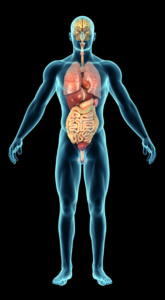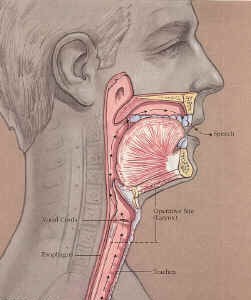23rd August 2012 - New research
THE PREVALENCE OF NON-MOTOR SYMPTOMS IN PARKINSON'S DISEASE
Clinical Neurology and Neurosurgery [2012] Aug 16
[Epub ahead of print] (E.M.Khedr, N.A.El Fetoh, H.Khalifa, M.A.Ahmed, K.M.El Beh)
Complete abstract
The primary symptom of Parkinson's Disease is excessive muscle contraction. That
leads to the characteristic symptoms such as rigidity, tremor, and bradykinesia
(slowness of movement). However, muscles are involved in physiological functions
throughout the body. The dopamine deficiency that causes Parkinson's Disease
also directly affects the emotions. Consequently, non-motor symptoms of
Parkinson's Disease are very common.
 The
non-motor symptoms that were found to most prevalent in Parkinson's Disease were
: disturbance of mood and cognition (87%), sleep disturbance and fatigue (78%),
gastrointestinal (76%), urinary (76%), sexual dysfunction (73%), cardiovascular
(70%). Perceptual problems and hallucinations are infrequent (10%) and are
usually due to Parkinson's Disease drugs, especially dopamine agonists, rather
than Parkinson's Disease itself. Dementia, which was found to be mostly mild,
occurred in around 22% of people with Parkinson's Disease. Although dementia
often eventually occurs in Parkinson's Disease, it has an entirely different
biochemistry from Parkinson's Disease. It is therefore not a
Parkinson's Disease symptom or inevitable in Parkinson's Disease. For a printable version of this article
click here.
In order to refer to this article on its own
click here.
The
non-motor symptoms that were found to most prevalent in Parkinson's Disease were
: disturbance of mood and cognition (87%), sleep disturbance and fatigue (78%),
gastrointestinal (76%), urinary (76%), sexual dysfunction (73%), cardiovascular
(70%). Perceptual problems and hallucinations are infrequent (10%) and are
usually due to Parkinson's Disease drugs, especially dopamine agonists, rather
than Parkinson's Disease itself. Dementia, which was found to be mostly mild,
occurred in around 22% of people with Parkinson's Disease. Although dementia
often eventually occurs in Parkinson's Disease, it has an entirely different
biochemistry from Parkinson's Disease. It is therefore not a
Parkinson's Disease symptom or inevitable in Parkinson's Disease. For a printable version of this article
click here.
In order to refer to this article on its own
click here.
19th August 2012 - New research
DIAGNOSIS OF PARKINSON'S DISEASE USING SPEECH
IEEE Transactions on Biomedical Engineering [2012]
59 (5) : 1264-1271 (A.Tsanas, M.A.Little, P.E.McSharry, J. Spielman, L.O.Ramig)
Complete abstract
There has been a lot of recent research into
the connection between Parkinson's Disease and speech impairment. Consequently,
a wide range of speech signal processing algorithms (dysphonia measures) aiming
to predict Parkinson's Disease severity using speech signals have been
introduced. Dysphonia is an impairment in the ability to produce vocal
sounds. For more information, go to
Dysphonia.
 Researchers
assessed how accurately such measures can be in discriminating people with
Parkinson's Disease from people who do not have it. In total, the researchers
computed 132 measures of dysphonia measures from sustained vowels. They then
used a large database of vocal samples from different people. The researchers
demonstrated that these measures of dysphonia can outperform standard methods of
diagnosing Parkinson's Disease by reaching almost 99% overall classification
accuracy. They achieved this by using only ten features of dysphonia. For a printable version of this article
click here.
In order to refer to this article on its own
click here.
Researchers
assessed how accurately such measures can be in discriminating people with
Parkinson's Disease from people who do not have it. In total, the researchers
computed 132 measures of dysphonia measures from sustained vowels. They then
used a large database of vocal samples from different people. The researchers
demonstrated that these measures of dysphonia can outperform standard methods of
diagnosing Parkinson's Disease by reaching almost 99% overall classification
accuracy. They achieved this by using only ten features of dysphonia. For a printable version of this article
click here.
In order to refer to this article on its own
click here.
16th August 2012 - New research
PARKINSON'S DISEASE IS PREVALENT AMONG NATIVE AMERICANS
Movement Disorders [2012] Aug 14 [Epub ahead of
print] (P.H.Gordon, J.M.Mehal, R.C.Holman, A.S.Rowland, J.E.Cheek)
Complete abstract
The objective of this study was to determine the
prevalence of Parkinson's Disease among American Indian and Alaska Native
peoples. Alaska Natives include Eskimos and Athabascan. Athabascan languages are
spoken in Alaska and across north western Canada, and are quite distinct from
American Indians.
 The
age adjusted prevalence of Parkinson's Disease was found to be 355 people per
100,000. This makes it the highest in North America, even beyond the 329 per
100,000 found in Nebraska, which was previously thought to have the highest
prevalence of Parkinson's Disease in North America. The prevalence amongst Native Americans increased with age up until
84 years old, and was greater amongst men rather than women. For more concerning
the prevalence of Parkinson's Disease go to the
Prevalence of Parkinson's Disease. For a printable version of this article
click here.
In order to refer to this article on its own
click here.
The
age adjusted prevalence of Parkinson's Disease was found to be 355 people per
100,000. This makes it the highest in North America, even beyond the 329 per
100,000 found in Nebraska, which was previously thought to have the highest
prevalence of Parkinson's Disease in North America. The prevalence amongst Native Americans increased with age up until
84 years old, and was greater amongst men rather than women. For more concerning
the prevalence of Parkinson's Disease go to the
Prevalence of Parkinson's Disease. For a printable version of this article
click here.
In order to refer to this article on its own
click here.
10th August 2012 - News report
BOB HOSKINS DIAGNOSED WITH PARKINSON'S DISEASE
 The
British Hollywood actor Bob Hoskins has been diagnosed with Parkinson's Disease.
Consequently he is completely retiring from acting. He appeared in films such as
The Long Good Friday (1980), The Cotton Club (1984), Mona Lisa (1986), Who
Framed Roger Rabbit (1988), Mermaids (1990), Hook (1991), and Neverland (2011).
He claimed rarely to watch any of his own films, despite making more than 80 of
them, remarking : �I�ll be watching a film on television at home and then
realise with a shock that I�m in it.� For more
information, go to the
News report. In order to refer to this
article on its own
click here.
The
British Hollywood actor Bob Hoskins has been diagnosed with Parkinson's Disease.
Consequently he is completely retiring from acting. He appeared in films such as
The Long Good Friday (1980), The Cotton Club (1984), Mona Lisa (1986), Who
Framed Roger Rabbit (1988), Mermaids (1990), Hook (1991), and Neverland (2011).
He claimed rarely to watch any of his own films, despite making more than 80 of
them, remarking : �I�ll be watching a film on television at home and then
realise with a shock that I�m in it.� For more
information, go to the
News report. In order to refer to this
article on its own
click here.
8th August 2012 - New book
PARKINSON'S HUMOR - FUNNY STORIES ABOUT MY LIFE WITH
PARKINSON'S DISEASE
Beverly Robaudo
 Publisher's
description : I have Parkinson's Disease and a sense of humor! This is a
collection of 100 funny stories about my life with Young Onset Parkinson's
Disease. I also share some helpful advice for surviving this disease. Come learn
and laugh with me! Laughter is the best medicine. Have a Happy Parkie Day !
Publisher's
description : I have Parkinson's Disease and a sense of humor! This is a
collection of 100 funny stories about my life with Young Onset Parkinson's
Disease. I also share some helpful advice for surviving this disease. Come learn
and laugh with me! Laughter is the best medicine. Have a Happy Parkie Day !
Parkinson's Humor - Funny Stories about My Life with Parkinson's Disease has
been published as a Kindle on Amazon. It is text to speech enabled.
Click
here for more details. For
more books concerning Parkinson's Disease go to
Parkinson's Disease Books.
2nd August
2012 - New research
CAFFEINE REDUCES
PARKINSON'S DISEASE
Neurology [2012] Aug 1 [Epub ahead of print] (Postuma RB, Lang AE, Munhoz RP,
Charland K, Pelletier A, Moscovich M, Filla L, Zanatta D, Romenets SR, Altman R,
Chuang R, Shah B.)
Complete abstract
Neurology [2012] Aug 1 [Epub ahead of print] (Schwarzschild MA.)
Complete abstract
 Caffeine
was found to reduce Parkinson's Disease symptom scores using the standard scale
for Parkinson's Disease, which is the UPDRS. There were no changes in quality of
life, depression or sleep quality. The amount of coffee assessed was 2 to
4 cups of coffee per day. The trial lasted for 6 weeks. Caffeine is commonly
found in coffee, and to a lesser extent in tea, cola drinks, cocoa, and
chocolate. Studies had consistently linked caffeine, a non-selective adenosine
antagonist, to a lower risk of Parkinson's Disease. However, the effects on the
symptoms of people who already had Parkinson's Disease had not previously been
adequately evaluated.
Caffeine
was found to reduce Parkinson's Disease symptom scores using the standard scale
for Parkinson's Disease, which is the UPDRS. There were no changes in quality of
life, depression or sleep quality. The amount of coffee assessed was 2 to
4 cups of coffee per day. The trial lasted for 6 weeks. Caffeine is commonly
found in coffee, and to a lesser extent in tea, cola drinks, cocoa, and
chocolate. Studies had consistently linked caffeine, a non-selective adenosine
antagonist, to a lower risk of Parkinson's Disease. However, the effects on the
symptoms of people who already had Parkinson's Disease had not previously been
adequately evaluated.
The researcher described it as "a modest improvement, but may be enough to
provide benefit to patients". He pointed out that the study was short and that
the effects of caffeine may lessen over time. Previous studies that used much
higher quantities (about 8 cups of coffee per day) resulted in no improvement in
symptoms, and instead caused an increase in dyskinesia, restlessness and
insomnia. For a printable version of this article
click here.
In order to refer to this article on its own
click here.
.gif)
.gif)
 The
non-motor symptoms that were found to most prevalent in Parkinson's Disease were
: disturbance of mood and cognition (87%), sleep disturbance and fatigue (78%),
gastrointestinal (76%), urinary (76%), sexual dysfunction (73%), cardiovascular
(70%). Perceptual problems and hallucinations are infrequent (10%) and are
usually due to Parkinson's Disease drugs, especially dopamine agonists, rather
than Parkinson's Disease itself. Dementia, which was found to be mostly mild,
occurred in around 22% of people with Parkinson's Disease. Although dementia
often eventually occurs in Parkinson's Disease, it has an entirely different
biochemistry from Parkinson's Disease. It is therefore not a
Parkinson's Disease symptom or inevitable in Parkinson's Disease. For a printable version of this article
The
non-motor symptoms that were found to most prevalent in Parkinson's Disease were
: disturbance of mood and cognition (87%), sleep disturbance and fatigue (78%),
gastrointestinal (76%), urinary (76%), sexual dysfunction (73%), cardiovascular
(70%). Perceptual problems and hallucinations are infrequent (10%) and are
usually due to Parkinson's Disease drugs, especially dopamine agonists, rather
than Parkinson's Disease itself. Dementia, which was found to be mostly mild,
occurred in around 22% of people with Parkinson's Disease. Although dementia
often eventually occurs in Parkinson's Disease, it has an entirely different
biochemistry from Parkinson's Disease. It is therefore not a
Parkinson's Disease symptom or inevitable in Parkinson's Disease. For a printable version of this article
 Researchers
assessed how accurately such measures can be in discriminating people with
Parkinson's Disease from people who do not have it. In total, the researchers
computed 132 measures of dysphonia measures from sustained vowels. They then
used a large database of vocal samples from different people. The researchers
demonstrated that these measures of dysphonia can outperform standard methods of
diagnosing Parkinson's Disease by reaching almost 99% overall classification
accuracy. They achieved this by using only ten features of dysphonia. For a printable version of this article
Researchers
assessed how accurately such measures can be in discriminating people with
Parkinson's Disease from people who do not have it. In total, the researchers
computed 132 measures of dysphonia measures from sustained vowels. They then
used a large database of vocal samples from different people. The researchers
demonstrated that these measures of dysphonia can outperform standard methods of
diagnosing Parkinson's Disease by reaching almost 99% overall classification
accuracy. They achieved this by using only ten features of dysphonia. For a printable version of this article
 The
age adjusted prevalence of Parkinson's Disease was found to be 355 people per
100,000. This makes it the highest in North America, even beyond the 329 per
100,000 found in Nebraska, which was previously thought to have the highest
prevalence of Parkinson's Disease in North America. The prevalence amongst Native Americans increased with age up until
84 years old, and was greater amongst men rather than women. For more concerning
the prevalence of Parkinson's Disease go to the
The
age adjusted prevalence of Parkinson's Disease was found to be 355 people per
100,000. This makes it the highest in North America, even beyond the 329 per
100,000 found in Nebraska, which was previously thought to have the highest
prevalence of Parkinson's Disease in North America. The prevalence amongst Native Americans increased with age up until
84 years old, and was greater amongst men rather than women. For more concerning
the prevalence of Parkinson's Disease go to the
 The
British Hollywood actor Bob Hoskins has been diagnosed with Parkinson's Disease.
Consequently he is completely retiring from acting. He appeared in films such as
The Long Good Friday (1980), The Cotton Club (1984), Mona Lisa (1986), Who
Framed Roger Rabbit (1988), Mermaids (1990), Hook (1991), and Neverland (2011).
He claimed rarely to watch any of his own films, despite making more than 80 of
them, remarking : �I�ll be watching a film on television at home and then
realise with a shock that I�m in it.� For more
information, go to the
The
British Hollywood actor Bob Hoskins has been diagnosed with Parkinson's Disease.
Consequently he is completely retiring from acting. He appeared in films such as
The Long Good Friday (1980), The Cotton Club (1984), Mona Lisa (1986), Who
Framed Roger Rabbit (1988), Mermaids (1990), Hook (1991), and Neverland (2011).
He claimed rarely to watch any of his own films, despite making more than 80 of
them, remarking : �I�ll be watching a film on television at home and then
realise with a shock that I�m in it.� For more
information, go to the
 Publisher's
description : I have Parkinson's Disease and a sense of humor! This is a
collection of 100 funny stories about my life with Young Onset Parkinson's
Disease. I also share some helpful advice for surviving this disease. Come learn
and laugh with me! Laughter is the best medicine. Have a Happy Parkie Day !
Publisher's
description : I have Parkinson's Disease and a sense of humor! This is a
collection of 100 funny stories about my life with Young Onset Parkinson's
Disease. I also share some helpful advice for surviving this disease. Come learn
and laugh with me! Laughter is the best medicine. Have a Happy Parkie Day !
 Caffeine
was found to reduce Parkinson's Disease symptom scores using the standard scale
for Parkinson's Disease, which is the UPDRS. There were no changes in quality of
life, depression or sleep quality. The amount of coffee assessed was 2 to
4 cups of coffee per day. The trial lasted for 6 weeks. Caffeine is commonly
found in coffee, and to a lesser extent in tea, cola drinks, cocoa, and
chocolate. Studies had consistently linked caffeine, a non-selective adenosine
antagonist, to a lower risk of Parkinson's Disease. However, the effects on the
symptoms of people who already had Parkinson's Disease had not previously been
adequately evaluated.
Caffeine
was found to reduce Parkinson's Disease symptom scores using the standard scale
for Parkinson's Disease, which is the UPDRS. There were no changes in quality of
life, depression or sleep quality. The amount of coffee assessed was 2 to
4 cups of coffee per day. The trial lasted for 6 weeks. Caffeine is commonly
found in coffee, and to a lesser extent in tea, cola drinks, cocoa, and
chocolate. Studies had consistently linked caffeine, a non-selective adenosine
antagonist, to a lower risk of Parkinson's Disease. However, the effects on the
symptoms of people who already had Parkinson's Disease had not previously been
adequately evaluated.